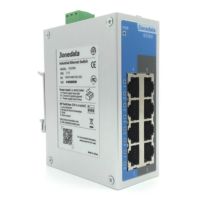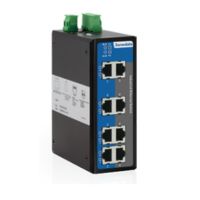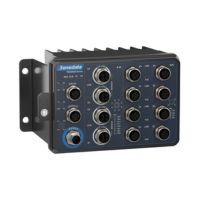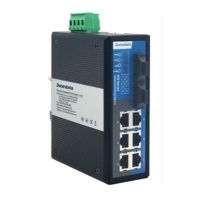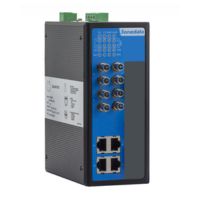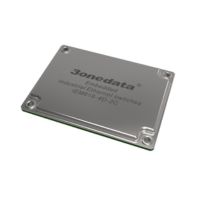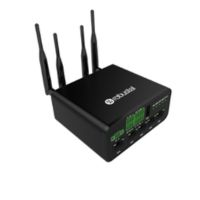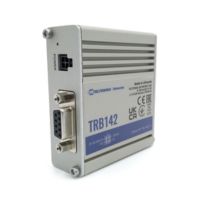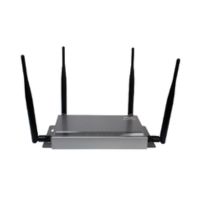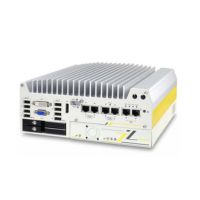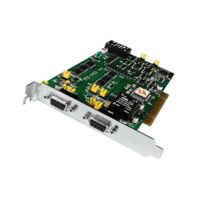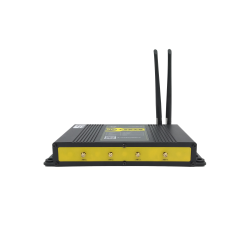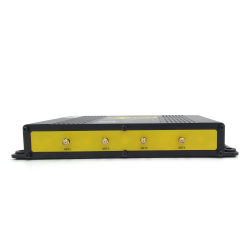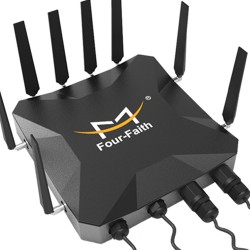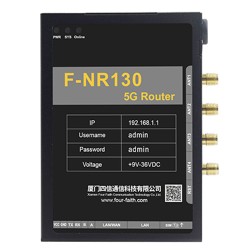Exploring the Features of 5G Routers for Industry

As the world rapidly transitions into the era of the Internet of Things (IoT) and Industry 4.0, the need for robust, fast, and reliable connectivity has never been more critical. Meet the ultimate 5G router—a technological marvel designed to meet the demanding connectivity requirements of modern industries. Explore the myriad features of 5G routers, and learn how they are revolutionizing industrial operations, increasing productivity, and paving the way for innovative applications.
Introduction: The Evolution of Industrial Connectivity
The Road to 5G
From the early days of wired networks to the advent of wireless technologies, industrial connectivity has come a long way. The evolution from 2G to 4G brought significant improvements in speed and reliability, but it is the arrival of 5G that promises to truly transform industrial communications. With unparalleled speed, low latency, and massive connectivity capabilities, 5G is set to become the backbone of modern industrial operations.
The Role of 5G Routers
At the heart of this transformation are 5G routers—devices that facilitate seamless connectivity by harnessing the power of 5G networks. Unlike traditional routers, 5G routers are designed to meet the unique challenges and demands of industrial environments, providing enhanced performance, security, and reliability.
Key Features of 5G Routers
Unrivaled Speed and throughput
- Breakthrough speeds
One of the most compelling features of 5G routers is their ability to deliver breakthrough speeds. With download speeds that can exceed 10 Gbps, 5G routers far outperform their 4G predecessors. This ultra-fast connectivity enables industries to transfer large amounts of data in real time, facilitating activities such as high-definition video streaming, advanced data analysis, and remote machine operation.
- High throughput
In addition to speed, 5G routers offer significantly greater throughput. This increased throughput allows thousands of devices to connect simultaneously without sacrificing performance. For industries that use a wide range of IoT devices, this means more reliable and efficient performance with minimal risk of network congestion.
Very low latency
- Real-time communication
Latency—the time it takes for data to travel from one point to another—has always been a key factor in industrial communications. 5G routers excel in this area, offering ultra-low latency that can be as low as 1 millisecond. This near-instantaneous data transmission is essential for real-time applications such as autonomous vehicles, robotic surgery, and industrial automation, where even the slightest delay can have serious consequences.
- Increased precision and control
The ultra-low latency provided by 5G routers increases the precision and control of industrial processes.words. In manufacturing, for example, low latency ensures that robot arms and machines operate in perfect sync, increasing efficiency and reducing the risk of errors. In the healthcare sector, it enables remote surgeries with real-time feedback, ensuring patient safety and procedural accuracy.
Mass Device Connectivity
- Scalability
One of the defining features of 5G technology is its ability to support mass device connectivity. 5G routers can connect up to one million devices per square kilometer, making them ideal for large-scale industrial deployments. This scalability is key for industries implementing IoT solutions where numerous sensors, machines, and devices need to be connected.
- Seamless Integration
5G routers facilitate seamless integration of various devices and systems into the industrial ecosystem. They support various communication protocols and standards, ensuring compatibility with existing infrastructure. This interoperability simplifies the deployment and management of IoT networks, enabling industries to scale their operations effortlessly.
Advanced security features
- Enhanced encryption
Security is paramount in industrial environments where data integrity and confidentiality are critical. 5G routers are equipped with advanced encryption technologies that protect data transmitted over the network. These encryption methods protect against cyber threats, ensuring that confidential information is safe.
- Network slicing
A unique feature of 5G routers is network segmentation, a technique that allows the creation of multiple virtual networks within a single physical network. Each segment can be customized to meet the specific needs of different applications, with dedicated resources and security measures. This ensures that critical industrial processes have guaranteed throughput and security, without disruption from other network traffic.
Reliability and resilience
- Redundant connectivity
Industrial operations often require uninterrupted connectivity, even in challenging environments. 5G routers provide redundant connectivity options, such as dual-SIM support and multipath routing. These features ensure continuous network access by automatically switching to an alternate connection in the event of a failure, minimizing downtime and maintaining operational continuity.
- Rugged design
5G routers are built to withstand the harsh conditions often found in industrial environments. They feature a rugged design that is resistant to dust, moisture, extreme temperatures, and mechanical vibration. This durability ensures reliable performance in environments such as factories, mines and construction sites where traditional networking equipment can fail.
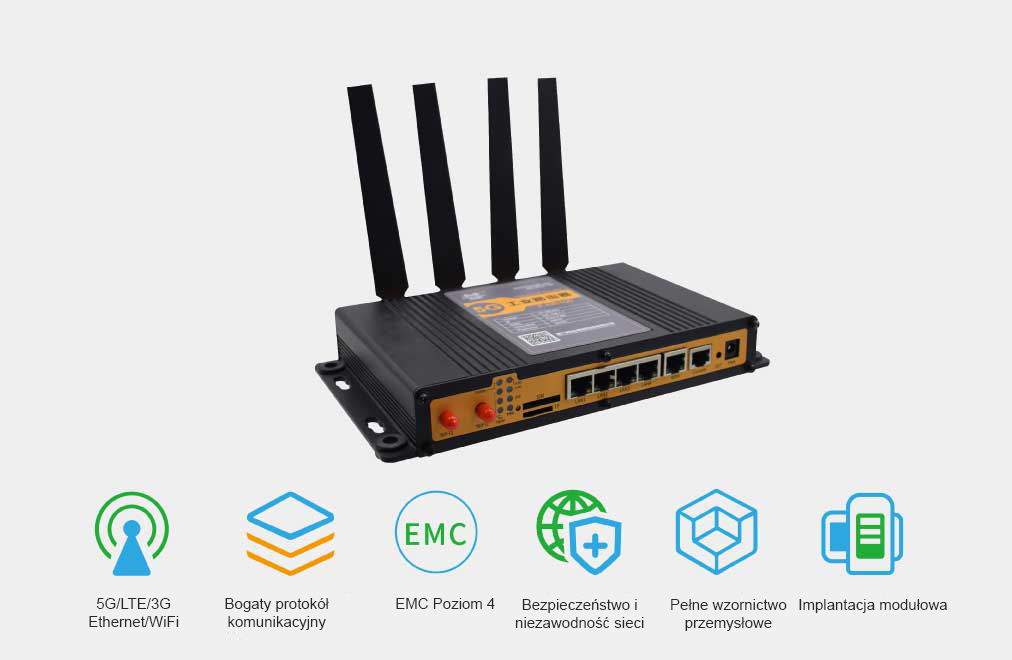
5G Router Applications in Industry
Smart Manufacturing
- Real-time Monitoring and Control
In smart manufacturing, 5G routers enable real-time monitoring and control of production lines. High-speed connectivity and low latency enable seamless transmission of data from sensors and machines to central control systems. This real-time visibility increases operational efficiency by enabling proactive maintenance, reducing downtime, and optimizing asset utilization.
- Advanced automation
The ultra-low latency and high reliability of 5G routers support advanced automation in manufacturing. Robots and automated guided vehicles (AGVs) can communicate and coordinate with unprecedented precision, increasing productivity and reducing the risk of accidents. Additionally, 5G-enabled augmented reality (AR) and virtual reality (VR) applications can provide workers with immersive training experiences, improving skill acquisition and safety.
Healthcare
- Remote Surgery
5G routers are revolutionizing the healthcare industry by enabling remote surgery and telemedicine. The ultra-low latency and high reliability of 5G connectivity means surgeons can perform procedures on patients miles away, with real-time feedback and control. This capability expands access to expert medical care, especially in remote and underserved areas.
- Wearable medical devices
Wearable devices and remote patient monitoring systems benefit greatly from the high bandwidth and massive connectivity of 5G routers. These devices can continuously transmit real-time health data to healthcare workers, enabling early detection of health issues and timely interventions. This continuous monitoring improves patient outcomes and reduces the burden on healthcare facilities.
Transportation and logistics
- Autonomous Vehicles
5G routers are a key enabler of autonomous vehicles, providing the low latency and high reliability required to operate safely and efficiently. These vehicles rely on real-time data from sensors, cameras, and GPS systems to navigate and make decisions. 5G connectivity ensures that this data is transmitted instantaneously, enabling precise control and coordination.
- Fleet Management
In logistics, 5G routers facilitate advanced fleet management solutions. Real-time vehicle tracking and monitoring enables optimized route planning, reduced fuel consumption, and reduced delivery times. In addition, 5G-based predictive maintenance ensures that vehicles are serviced proactively, minimizing breakdowns and operational disruptions.
Energy and Utilities
- Smart Grid Management
5G routers play a key role in smart grid management. They enable monitoring and controln real-time power distribution, enabling utilities to more effectively balance supply and demand. The high-speed connectivity of 5G routers supports the integration of renewable energy sources, demand response programs, and advanced metering infrastructure (AMI), increasing the reliability and sustainability of the power grid.
- Remote Asset Monitoring
In the energy sector, 5G routers facilitate remote monitoring of critical assets such as pipelines, wind turbines, and solar panels. Real-time data transmission from these assets enables early detection of problems, reducing the risk of failures, and optimizing maintenance schedules. This remote monitoring capability is especially valuable in remote and dangerous locations where manual inspections can be difficult and expensive.
Agriculture
- Precision Farming
5G routers are transforming agriculture with precision farming techniques. High-speed connectivity enables IoT sensors and drones to collect real-time data on soil conditions, crop health, and weather patterns. This data-driven approach allows farmers to make informed decisions about irrigation, fertilization, and pest control, resulting in increased yields and reduced environmental impact.
- Autonomous Machinery
Autonomous machines like tractors and combines benefit from the low latency and reliability of 5G routers. These machines can operate with high precision and efficiency, performing tasks such as planting, harvesting and spraying with minimal human intervention. The real-time connectivity provided by 5G routers ensures that these machines can adapt to changing conditions and operate safely.
Future perspectives and innovations
Improved AI and Machine Learning Integration
The integration of AI and machine learning with 5G routers is set to drive further innovation in industrial applications. AI-based analytics can process massive amounts of data transmitted by 5G routers, providing valuable insights and predictive capabilities. This combination will enable industries to optimize operations, reduce costs, and drive continuous improvement.
Edge computing
Edge computing, which involves processing data closer to the source rather than in a centralized data center, is another potential growth area for 5G routers. By integrating edge computing capabilities, 5G routers can perform real-time data processing and analytics at the edge of the network. This reduces latency, increases data security, and enables more responsive and efficient industrial applications.
Expanded IoT Ecosystems
As 5G deployments continue to expand, the ecosystem of IoT devices and applications will grow in tandem. 5G routers will play a key role in this ecosystem, providing the connectivity needed to support the ever-increasing number of IoT devices. This expansion will drive the development of new applications and services, further expanding the capabilities and benefits of 5G technology for industry.
Challenges and considerations
Implementation costs
While the benefits of 5G routers are significant, the costs of implementation can be significant. Industries must consider the investments required to upgrade infrastructure, purchase equipment, and maintain networks. However, the long-term benefits in in efficiency, productivity and innovation can outweigh these initial costs.
Security Concerns
With the increased connectivity and data transmission enabled by 5G routers, security concerns become paramount. Industries need to implement robust security measures to protect themselves from cyber threats and ensure the integrity of their networks. This includes encryption, authentication, and ongoing vulnerability monitoring.
Regulatory and Compliance
The deployment of 5G technology is subject to regulations and compliance solutions. Industries must navigate these regulations to ensure that their use of 5G routers complies with local, national and international standards. This includes issues related to spectrum allocation, data privacy and environmental impact.
Conclusion: Embracing the 5G Revolution
The advent of 5G routers marks a significant milestone in the evolution of industrial connectivity. With unmatched speed, low latency, massive connectivity, and advanced security features, 5G routers are poised to revolutionize the industry across the board. From From smart manufacturing and healthcare to transportation, energy and agriculture, the applications and benefits of 5G routers are vast and transformational.
As industries embrace this 5G revolution, they must also address the challenges and considerations surrounding implementation. By investing in the necessary infrastructure, implementing robust security measures, and staying informed about regulatory requirements, companies can unleash the full potential of 5G technology and propel your operations into the future.
In summary, the future of industry lies in the hands of 5G routers. These powerful devices will not only streamline existing operations, but also pave the way for innovative applications and new business models. As we enter this new era of connectivity, the impact of 5G routers on industrial operations will be profound and far-reaching, heralding a new era of efficiency, productivity and technological advancement.

